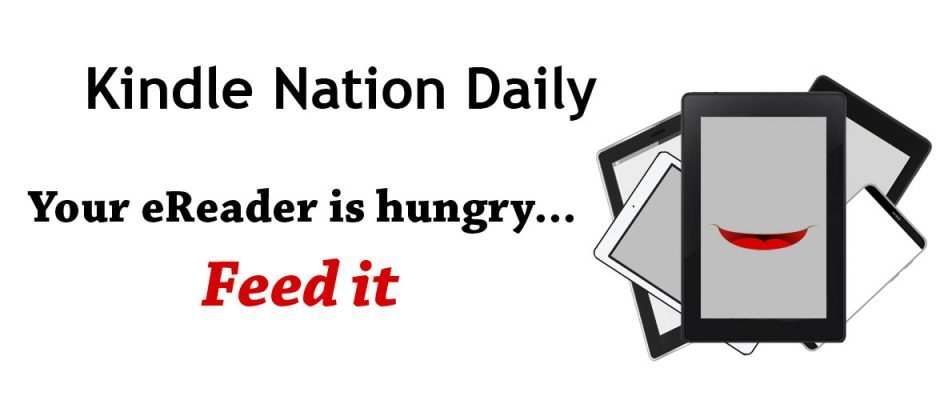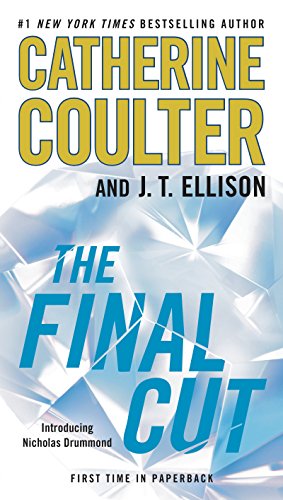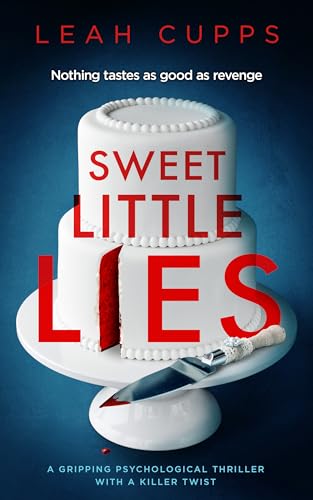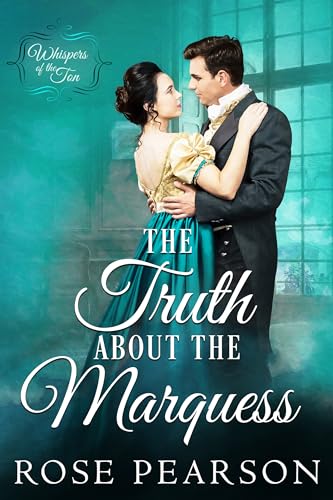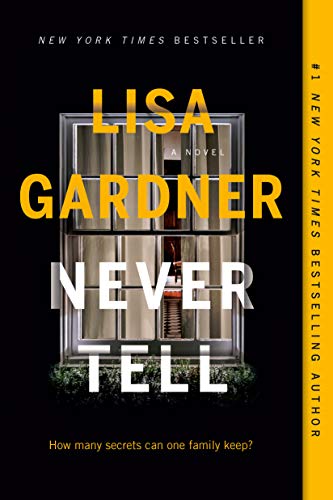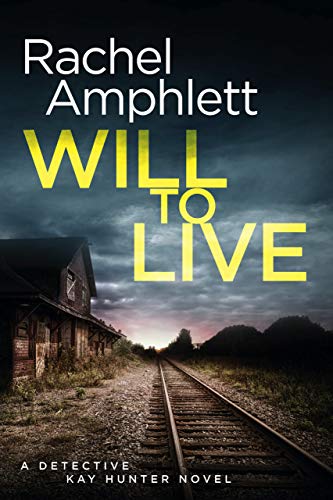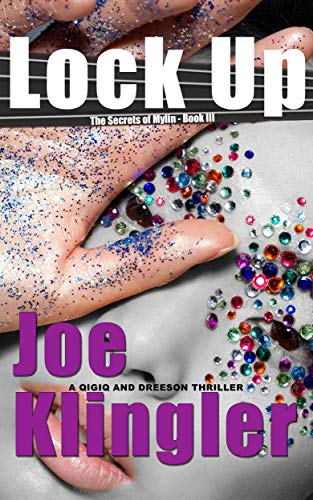Last week we announced that Rich Marcello’s The Color of Home: A Novel is our Romance of the Week and the sponsor of thousands of great bargains in the Romance category: over 200 free titles, over 600 quality 99-centers, and thousands more that you can read for free through the Kindle Lending Library if you have Amazon Prime!
Now we’re back to offer our weekly free Romance excerpt, and if you aren’t among those who have downloaded The Color of Home: A Novel, you’re in for a real treat:
The Color of Home: A Novel
by Rich Marcello
A love story for today, an open and striking look into the private relationship of a musician and chef living in New York City.
Can two people stay connected for a lifetime and each know the complete truth about the other? When New Yorker Nick Satterborn falls in love with Sassa Vikander, he’s convinced the answer is yes.
Nick Satterborn. Songwriter. Dabbler on the spiritual path. Survivor.
Sassa Vikander. Stunning chef. Seeker on the path of most resistance. Survivor.
Contentment percolates for a time, until the two are hurtled into a life of uncertainty, self-evaluation, and growth. Each dreams heroic dreams of overcoming his/her past, rising out of sadness, rediscovering home, finding peace. Their worlds dissolve and reform. People and events threaten to tear them apart.
The Color of Home is a story of love, of loss, of digging deep down to the bottom of things until maybe, just maybe, Nick and Sassa find the strength to become whole. Their journey offers a unique, honest glimpse into the life and love of a palpably rare relationship of our time.
* * *
Free and Bargain Quality eBooks delivered straight to your email everyday – Subscribe now http://www.bookgorilla.com/kcc
* * *
And here, for your reading pleasure, is our free romance excerpt:
CHAPTER 1
When Nick met Sassa, he was pulled in by an unusual light in her eyes, old and familiar, a beacon and a badge for those deft enough to notice: the color of home.
“More tea?” he asked.
“Yes, please.”
Nick unwound his body, stood, stacked Sassa’s cup on top of his, and ambled across Joe’s Artful Coffee to one of the baristas. He picked up six different tea jars and sniffed each. Pointing to one on the end, he said, “I’ll have a large tea and a cappuccino with two shots of espresso.”
As he waited, he studied a picture on the side wall of the John and Yoko bed-in. In a sunlit room, they sat on a mattress with their legs crossed. Two handwritten signs, “Hair Peace” and “Bed Peace”, were pasted above them on the windows. A Schwinn bike rested directly in front of them. Did anyone get that much sun anymore?
He looked over at Sassa, thumb-typing on her phone. Sassa Vikander had long, straight blonde hair that draped her shoulders and danced on the tabletop like two expertly controlled marionettes. She had creamy white skin that framed her smile perfectly. Her eyes reflected fractal blue, so much so that he imagined strangers stopping in their tracks to stare, compelled by the color and movement.
At least that’s what he’d done when, only an hour ago, she stepped into the café largely unknown. A friend of one of his employees. A New Yorker for half a decade. At twenty-eight, a year younger than him. Dressed in sixties vintage clothing—a royal blue mini-dress with a black jacket, a black fedora, a black pearl necklace, and black leather boots up to her knees—she had arrived from a safer time.
Then, early in their conversation, a flicker and the sweetest sadness. Like a character in a Bergman movie, Sassa didn’t have much emotional time left and, without help, would soon fade into that hopeless place he’d dreaded for so long. A place where recovery was impossible. A place where she would replace her badge of defiance, of hope, with one of submission. A place where the beacon would be smothered as weight stole her away from love. Scared for her, he’d inexplicably blurted all of this out, as if he had no choice, as if the feeling, disproportionate, had a mind of its own. She’d almost walked out on him. But with his promise of a restart and another tea, she had stayed.
“Excuse me, sir. Your drinks are ready.”
Nick turned around and rested his hands on the counter. “Can I ask you a question?”
“Sure.”
“Do you watch foreign movies?”
“Nah. I like romantic comedies. You?”
“Yeah. Way too many.” He picked up his drinks, nodded, then balanced his way back outside to the table. On the way, he scanned the Greenwich Village café, which bustled with conversation that spring morning. With open floor-to-ceiling front windows and outside tables full, the café extended to the end of the Thirteenth Street sidewalk, where Sassa sat waiting. As he gently placed her tea on the round tabletop, a warm breeze washed over him like water caressing a stone. “Here you go. Extra strong Gyokuro Imperial Green Tea.”
She took a sip. “This one is really good.” After a few more sips, she put her cup down and stroked the handle a few times. She moved her mouth as if to say something, but checked herself and studied the sidewalk instead. When she turned back to him, she clearly had a more measured response. “I’ve been thinking about our earlier conversation. Do you always start your dates with emotional stuff?”
“Normally not, though I’m not that good at small talk.”
“So you understand the light now?”
“Maybe.”
“You can do better than that.”
That’s why he loved strong women—he had to do better. Waves of warmth radiated from his chest and balanced the heat on his face from the sun. He smiled. “It’s the color of loss.”
She reached into her purse and pulled out a Chick-in-Shell Pez dispenser. She flicked the chick and stacked purple Pez until they fell over. “Let’s recap. So now I know you’re attracted to me, you noticed some funky light in my eyes that reminds you of loss, and you’re good at picking tea. When do you get to the original stuff?”
“You’ve heard this before?”
“Better be soon.”
“Do you think our conversation has been generative so far?”
She twirled a Pez with her thumb and index finger, then popped it in her mouth. She reached for her tea. “Is generative even a word?” Smiling into her teacup, she put the cup down, then lifted it again and took a sip. A well- dressed businessman caught her eye as he entered the café.
“I believe so. Life’s all about words and ideas.”
“Sadly.”
“What do you mean?”
“Really?”
“Right.” What was she talking about? What else was there? “I meant what I said about your eyes. There’s something about them—”
“This might go south.”
“Where do you want it to go?”
“North.” Her phone buzzed and she picked it up to read a text message.
Fragments from deep within him, puzzling, stored long ago, surfaced, attempting to reassemble for her, before they lost shape and sank. A picture of what? Why now? Why her? Not a clue. He couldn’t shed his discomfort, but instead of closing down, instead of pulling back, instead of deflecting, he leaned in.
“Sorry.”
“No problem. Back to the light. I see strength, but that’s only partially right. You’re strong, though your strength might be better described as perseverance. You don’t give up.”
“Wow, I’ve won the jackpot.”
“You’ve tried to fix a problem for a long time and you haven’t been able to sort things out. You’re hoping that you’ll get there someday, though my hunch is that your hope is starting to dwindle. That, more than anything else, scares you.”
Faint changes colored her facial expression. Her eyebrows arched as her mouth circled before momentarily resting. Then the corners of her lips barely turned upward. “Have you thought about a career as a psychic?”
“More as a therapist. Go with the flow for a bit.”
“What do you think you’re . . . sorry, I’m trying to fix?”
“Your sadness. Your numbness. Do you agree?”
“What do you think?”
“Do you always answer a question with a question?”
“Almost always.” Her eyes dulled and she stared off at nothing as she reached for her Pez dispenser and slipped it back into her purse. Then she twirled a strand of her hair for a bit. “Whenever I can get away with the flip.”
“That’s what I thought. Me too.”
“I don’t know if you’ve got me figured out. You sound pretty sure of yourself after only an hour, but I don’t trust words. You need to show me.”
She was right about that. What would pierce through? Reaching across the table, he held his finger up like E.T. and slowly pressed it against hers. For a second, something passed between them. A current? A spark? Probably nothing. He rested his finger on the table. “I don’t know what happened to you, but my hunch is there are places where we overlap.”
“I bet you say that to all the girls.”
“Maybe we can figure out the overlap together?”
She rested her finger on the table. “Too soon to tell.”
“One more thing. I believe in congruence between words and body language.”
“You’re kidding, right?”
“Not really. I say what’s on my mind and my body language mirrors what I say.”
Her phone beeped. She plucked it off the table and read another message. “Just a second.” She started typing something. A moment later, she rested her phone back on the table. “Sorry. Congruence. What an interesting idea.”
She’d thrown him a bone, but she wasn’t going to stick around much longer unless he figured out a way to get through. Words didn’t work. Ideas didn’t work. But there were unseen places where they overlapped and he’d never experienced that before. Maybe that would be the way in.
• • •
After a restless night of replaying his entire conversation with Sassa, Nick found himself again waiting for her the next morning at Joe’s. Each table seemed blocked off as patrons sat with opened copies of the Sunday Times. Street percussion from cars, trucks, delivery boys, and pedestrians blended with Radiohead’s “Subterranean Homesick Alien,” which blared through the café sound system. He tapped his foot in rhythm. With his laptop open, he admired Sassa from a corner table as she breezed into the café wearing jeans, a Nirvana Nevermind T-shirt, and black Keds. “Nice look.”
“I wanted to match you.” She fixed a stray hair behind her ear before closing his laptop and sitting down.
For most of his twenties, he’d worn the same clothing every day: a Beatles T-shirt, jeans, and Birkenstock sandals. Even in the winter. He tugged on his T-shirt right below the album cover. “I’m a few years behind you. Sometimes I think I was born into the wrong generation.”
“The White Album is my favorite,” she said.
“Mine too.”
“How many Beatles T-shirts do you have?”
“Lots. Not enough. I’ll order.”
He ordered coffee, tea, and the Times. She’d taken the time to dress down for him. And she liked the Beatles. What was it about her that was like no other? He didn’t have a clue, but George could have written the song for her. A few minutes later, he served her.
“You look tired,” she said.
“I didn’t sleep well. Do you want a section?”
“Business.”
“I’ll stick with Arts.”
She lifted the newspaper and paged through the Business section without reading a single story. After a few moments, she put the paper down on the empty chair next to her. Leaning over the table, she folded her hands. “Want to know what I thought about when I went home last night?”
“Sure.”
“You’re way ahead of me. I’m just looking to have a good time with a cute guy for a while.”
“Cute?”
“Yes, Nick, you do have that going for you.”
As a six foot four inches, guitar-playing songwriter with long curly brown hair, dark brown eyes, and a semi-tragic story, “cute” bothered him. But maybe that was the way in? Maybe it was that simple. “Cute?”
“I paid you a compliment and you’re complaining?”
“Sorry.”
She twirled her hair again. “You know, cute can cover a multitude of sins.”
“You’ve got me there. Same is true for beautiful.”
She grabbed his spoon, fiddled with it between both hands. Balancing the spoon on one finger, she glided it over the table until it fell on his hand. “Sorry.” Reaching over, she patted the injured part exactly once.
“No problem. Something on your mind?”
“Want to play the What and Why game?”
“You mean I get to ask you any What or Why question?”
“Me too.”
It was as if she were about to take a college final and knew all of the answers. Or she’d done this many times in the past only to be disappointed. But which one? He smoothed his T-shirt. He pushed back in his chair to straighten up. His laptop found a new home on an empty chair. He had to do better. “Okay. Shoot.”
She opened the stopwatch application on her phone and pushed start. “No more than ten seconds per answer. What school?”
“Columbia.”
“Why Columbia?”
“I had a hunch about living in the city. What school?”
“Michigan.”
“Why Michigan?”
“Easier to blend in with a hundred thousand students. What do you do for a living?”
“I run a small online recording studio: studiomusicans-dot-com.”
“Why music?”
“Love. What do you do?”
“I’m a chef at DiPosto.”
“Why a chef?”
“Love. An Italian grandmother taught me to cook. It stuck, I guess. She’s why I went to cooking school after I landed in New York. Your favorite movie?”
“Only formal what or why questions.”
“I don’t like rules.” With the corners of her lips turned slightly upward, she slid her phone into her purse.
“Persona. Ingmar Bergman.”
“I’ve never seen a Bergman movie. Aren’t they depressing? Why do you like it?”
He picked up his spoon and stirred his coffee. No one had ever asked him that question before. In fact, he’d never told anyone before that he’d even seen it. But for some reason, he needed to tell her. “I was numb, so I gathered feelings. Persona helped me learn to feel again.”
“What does ‘gathered feelings’ mean?”
“At first, they were like scripts. I used them when I needed a certain emotional response.”
She pushed her chair back, and crossed one leg over the other. Interlacing her hands, she draped them over her knee. “But you didn’t feel anything yourself?”
“Something like that. I was frozen. The scripts were my pretend thaw.”
“That sounds appealing. Can I borrow some?”
“They don’t seem necessary around you.” What a role reversal. After years of playing Sassa’s role with his former girlfriends, one where he withheld as much information as possible, he’d flipped to being the one openly sharing.
• • •
Freshman year, Nick skipped his morning classes at Columbia and plodded more than a hundred blocks from campus to see the first showing of Persona. He stepped into the Village Cinema and settled in the row behind an older man two seats to his right. Only the two of them. The patina of the place drew him in; the smell of popcorn melding with spilled soda, crushed candy, and who-knows-what-else was just right. Diet Pepsi in hand, he watched the previews.
The opening sequence of Persona rolled across the screen. Disjointed images and atonal music transported him. An erect penis, a cartoon, a tarantula, the crucifixion, a boy, all flashed before him in black and white. They woke him up, seemingly from a dream; he was more alert than he’d been in a long time. Who was that boy? He pushed back in his theater seat and straightened up. He parked his drink on the floor.
The camera zoomed in on Liv Ullmann’s face and stayed there for over a minute. Her face: the entire human condition, somehow holding boundless sadness and hope. She hovered in front of him, the most beautiful woman he’d ever seen.
Later, on screen, Liv’s character, Elisabet was on the beach with Alma. Dark and light hats on the beach. What an image. On the island, they created a place of light. And dark. A compartment. So many beautiful truths within each of them. Why did they keep their most vivid ones hidden? Elisabet studied Alma as if she were preparing for a part in a play, gathering in her feelings so she could use them when needed.
Later, the women’s faces merged into one—the most beautiful film image Nick had ever seen. Could any one human being see another completely and not fall apart?
After the film ended, Nick remained in his seat. He stroked the blue velvet on the arm of his chair with his finger. Nothing he’d experienced, in or out of a movie theater, compared to Persona. Shaking, tears welled up until he willed them back down. After the lights came on, he left the theater and trekked out of the Village toward campus.
He was like Liv’s Elisabet.
In the dark, safe, he’d gathered feelings without saying a word. He’d learned about intimacy without the real risk of revealing anything about himself. He’d banked emotional scripts for future use.
He crossed Columbus Circle and raced up Amsterdam, park side. Life since his dad’s death had consisted of distant and dishonest relationships. How to trust? How to be trusted? Could he let down his guard and enter into emotionally intimate relationships that were deep into things?
Infiltrating the campus, he made his way back to his dorm room. He sprawled at his desk, opened his economics book, and began working on his midterm paper. The euphoria from the afterglow of Persona permeated his writing as he whistled “Hey Jude.”
CHAPTER 2
A few days later, the spring sun, warmer than usual, bathed downtown in equal parts beauty and disfigurement. Nick and Sassa strolled down Bleeker Street. She wore a black, low-cut, sleeveless button-down shirt, jeans, and sandals. Both of her arms were adorned with antique gold bracelets. A matching gold necklace with black beads interspersed along its length dangled from her neck. As they walked, something deeper, with undercurrents worth riding, stirred in him. He glanced down at his “Strawberry Fields Forever” T-shirt. John. Why did all of the good ones die early?
“My father died when I was seventeen. . . . Heart attack,” he said.
“You loved him.”
“How can you tell?”
“Your voice.”
He stopped, turned toward her, and loosely crossed his arms. “Do you think a single point in time can define you?”
Reaching over, she grazed his forearm. “That’s an interesting topic.”
“Why?”
“Just is.”
“Do you want to hear more?”
“Let’s walk.” She wove her arm around his.
The street, covered with potholes, cracks, and temporary steel metal plates, was in such disrepair that vehicles had no choice but to bounce forward. Two young women, striking enough to be models, passed by Sassa and nodded.
“Can I read your poetry?”
“Really? Why?”
“I want to hear more.”
“Oh. That’s not exactly what I had in mind.” He’d never shared his poems, written or otherwise, with anyone, and had only mentioned them to her briefly in an earlier conversation. His chest tightened. The poems weren’t any good; he had to make them better first. “Maybe soon.”
“Okay. Whenever you’re ready.”
He drifted as they strolled by a pizza shop, a florist, a deli, a street vendor, and a homeless person. His arms tingled with some strange energy. From her. His heartbeat stepped up a notch. Her scent, even in the open air, pressed its way in with hints of jasmine, rose, and orange. Flooded with ideas, snippets of love songs rivaling Leonard Cohen’s, he listened to every word she said, and stored them for future use. She was a muse. With her at his side, he could become the songwriter, the poet he’d longed to be for years. He took a deep breath. “I can recite one now if you want.”
“Are you sure?” She reached over with her free hand and gently squeezed his arm.
“This one is called ‘Christmas.’”
“I don’t like holidays anymore.”
“Wait.”
“Okay.”
“Christmas. Today, years after memories have faded, they sharpen again, splinter further. The puzzle seems enormous, sprouting new pieces, blurred images, rumbled sounds partially dissolved, muffled in tears waiting.”
“Nice.”
“Then a gift, a familiar guide from someplace deep inside calls. I hear my father laughing at the Christmas dinner table years ago. My mother, young and beautiful, smiling as he pours her a glass of wine.”
“We drank red wine in our house every night at dinner.”
“We did too.” He stopped walking and turned toward her with a light step. “With this image, I realize this is just another holiday passing. While there is rejoicing with family, with friends, there is also inventory-taking of loved ones lost.”
She rolled a black bead on her gold necklace between her fingers. “I can see my parents and sister at our Christmas table.”
He touched her necklace lightly. “Your mom’s?”
“Yeah.”
Placing his hands on her hips, he pulled her close. The rest of the people, the cars, the city hum, faded until only her face, her smell, her touch remained. “The same cycle of mourning and relief repeats every year, though the waves don’t seem as large, as long, with time. A friend once told me all loss is the same after the first one. He is right.”
“You’re right.”
“I know.”
• • •
On Thursday, Nick opened his apartment door halfway and nodded Sassa in. She’d come over to watch Persona.
“Nice place. Expensive?”
“Cheap. A friend of my dad’s cut me a deal.”
At 700 square feet, the apartment consisted of a combined living room and kitchen with floor-to-ceiling windows looking out onto Charles Street, and a small bedroom barely larger than the queen-size bed it contained. Furnished with two mid-century modern chairs, a sofa, and a dining room table that doubled as a desk, all acquired from a secondhand shop in his hometown of Denville, New Jersey, he’d made the place his own. Two old, frayed, red Heriz rugs covered the hardwood floors, each worn in multiple spots to the point where little color remained. The bookcases, filled equally with books and CDs, lined one complete wall of the living room. Multiple guitars stood on stands throughout the room. A small LED flat-screen television was positioned on the wall opposite the sofa, and displayed the Persona DVD home page.
“Clean.”
“I prepared. Wine?”
“Nah. This is too important.”
They settled onto the sofa. He popped a Diet Pepsi. Minutes into the movie, she reached over and took his hand. She held onto it without saying a word until the movie ended, on occasion squeezing it or reaching over with her free hand to rub his forearm. A short way into the movie, he was convinced he could have stayed on that sofa, watching Persona with Sassa, forever.
“There’s too much betrayal,” she said. “The Liv Ullmann character, Elisabet, isn’t honest.”
“What I love about the movie is that Elisabet and Alma try to pierce through each other’s veils.”
“They succeed for a bit.”
“They couldn’t handle what they uncovered.”
“Liv Ullmann has the most expressive face I’ve ever seen.”
“Second.”
Sassa smiled and shook her head. “You need to knock me down a few notches.”
“Not likely.”
She pulled his arm across her legs and began tickling it slowly from his palm all the way up to his bicep. His hair moved in one direction, then the other, as if the tips of her fingers were magnetic. “Do you think that two people can walk through life together and each know the complete truth about the other?”
“Yes.”
“You really think it’s possible for two people to connect without any masks?”
“It depends on what we do with the fear.”
“It doesn’t go away.”
“No, but it may get in the way less and less.”
She stopped tickling his arm. “I’m filling in for a friend at the restaurant next week, so I won’t be able to see you for a few days. I can do dinner next Monday.”
• • •
On Monday, Nick arranged to meet Sassa uptown at Luca’s for dinner at eight o’clock. He arrived early and, out of habit, waited for her outside the restaurant. He had a thing about being on time and had been disappointed that she’d been a few minutes late for their earlier dates. As he waited, he recalled his college internship at a hi-tech company where his boss, a forty-something Portuguese woman with thick, streaming black hair, black eyes, and dark brown skin, had schooled him on tardiness. “Being late is a form of violence. Everyone’s time at the company is just as valuable as yours.” At first, upset by her choice of words, he’d pushed back. But soon after he accepted that she was right. From that day on, he never arrived late for a meeting, not even by a minute.
Sassa flowed toward Nick at twenty after eight, wearing a red sleeveless summer dress that reminded him of a picture of Charlize Theron he’d once seen. Her pumps matched her dress. A single strand of pearls encircled her neck. Her hair was pulled back in a ponytail.
“You look great. I love your hair.”
“Inspired by Liv. Sorry I’m late. I had trouble hailing a cab.”
“No problem.”
“Nice suit.”
He owned exactly one suit, black with dark blue pinstripes. Al Pacino in the The Godfather, Part II, only taller and with Jim Morrison hair. “Only one I own. Let’s find a quiet table out of the way and start with a good bottle of wine.”
He loved Italian wine. The sommelier took his order for an Amarone from his favorite vintner. As he waited for the wine to arrive, he detailed his love of dark reds. The sommelier returned promptly and unknowingly echoed Nick’s view while decanting the bottle. He let Nick sample the vintage. He poured the first glass for both of them.
Sassa raised the glass to her lips and sipped the wine. “Oh my!”
Nick smiled.
“Is it the same wine you had at Christmas?”
“No, but Dad pointed me down this path.”
“One of many gifts.”
He ripped off a piece of Italian bread, dipped it in hot pepper-infused garlic oil, savored a bite. He sipped his wine. “Do you want to hear about who came before?”
She removed her shoe, reached under the table with her foot, and brushed his leg. “If you want to.”
His lips parted. Maybe he should change the subject. “I’m pretty ambivalent about them.”
“Why?”
“Basically, I was a jerk. I manipulated them to get what I wanted.”
“We all do that.”
“Not like this. I didn’t treat them as equals. I held back and I tried to control everything. Let me tell you about Raine.”
Freshman year, Nick stepped onto the Columbia University campus feeling confident, committed. He intended to fix himself at school. He imagined leaving home and studying in the city as just the change he needed to get over what had happened to him. He’d made a pact with himself to try new things, to encounter new people, to study hard, to write more songs, and to seduce girls. He would heal. Or at least have enough diversions to keep his mind off his father.
He dated Raine only one time freshmen year, but she was the girl that stayed with him long after college ended. They had all of the same classes and, after continuously flirting one day, decided to study together. That night they entered the library and found an empty table near a wall of Eastern religion books. They studied for a couple of hours, though for a good portion of the time they whispered strangely erotic passages back and forth from a random book.
A short time later, he ushered Raine back to her dorm room. The campus night light pulsed as a driving wind paraded clouds past a crescent moon. Along the way, he fetched her hand, raised it to his lips, and kissed each finger. At the entrance to her dorm, he pulled her in close and caressed her face, brushing his lips lightly on hers. As she moved with him, he gradually went deeper, with more intensity.
Raine snatched his hand and led him through the door.
An hour later, he slipped back into his jeans and pulled his shirt on over his head. He glanced over at Raine, still in bed, watching him dress. She glistened with sweat. “You look beautiful.” There was something about working his way into a girl’s bed, then losing himself in that moment without thought where life and death intermingle.
“You scared me,” Raine said.
“I did? Why?”
“I bet you have a lot of girls fall in love with you.”
“Not too many.”
“How do you feel now?”
“Relaxed. The sex was intense.”
“Oh.”
“What does that mean?”
“Do you think there’s a difference between intensity and intimacy?”
“Sure, I meant intimate. Sorry.”
She sat up in bed and crisscrossed her arms across her breasts.
Nick folded his arms across his chest and tried to pre-fetch a reaction from Sassa. “She knew.”
Sassa put her wine glass down. Reaching across the table, she placed her hand on his. “She did. Bad timing. That’s all. You weren’t ready. You were doing the best you could. Loss will do that to you.” She was quiet a moment. “You know, fear is a fickle companion.”
“Good line.”
“I know.”
“I could have done better.”
“Not on the line.”
“Sorry, I meant—”
“We all need to forgive ourselves for who we used to be.”
Forgiveness was such a difficult idea for him. It had been for as long as he could remember. He didn’t understand its pull, its power, even though others had pushed him toward it. But somehow Sassa’s words made him want to try. “Have you done that?”
“I think about it now and then,” she said. She took off her other shoe and stroked his other leg.
“Oh my.” He could surrender to her. For the first time in his adult life. What was it about her that got to him like no one else?
“I told you words are overrated.”
“I didn’t understand.”
“Slow learner.”
The waiter arrived at the table with their entrees. Nick had ordered osso bucco with toasted pinenut gremolata, and Sassa had ordered tortelloni radicchio with parmigiano cream. To save money, they’d skipped the appetizers.
She took a bite. “This is fantastic!” She tacked on a little melody at the end of –tastic.
“Mine too.”
They ate their dinners slowly, savoring each bite. He fantasized that at any moment she might reach across the table, fork in hand, and let him taste a bite of her food. Instead, she deconstructed their entrees in glorious detail. He had no idea what gremolata or parmigiano cream entailed. He had no idea how much thought and work went into preparing food. He had no idea. Period. She was accomplished. And had fractal blue eyes. Why had it taken so long?
Over coffee and tea, he asked, “So, how about you? How many people have you loved in your life?” He braced himself.
“I’ve loved no one.”
Micro-expressions? None. “Not even your parents?”
“I loved them, I guess. I don’t think about them.”
“Why not?”
She lifted the prongs from the table’s sugar bowl and slowly dropped three cubes of sugar into her tea, one at a time. While stirring she said, “They died, along with my sister, in a car accident right after I turned thirteen.”
“Were you with them in the car?”
“Only survivor.”
“I’m so sorry, Sassa.” He reached out and gathered her hands.
“Thank you. I’m okay. It was a long time ago.”
“Who raised you?”
“My aunt and uncle. They were genuinely kind, but you can’t replace parents.” She pulled one hand away from him and tapped her finger on the table.
He didn’t take the conversation further that night. He hated when people pushed him about his loss and had no intention of doing the same to her. They finished their meals on lighter topics and coffee gelato. Then he walked her home.
